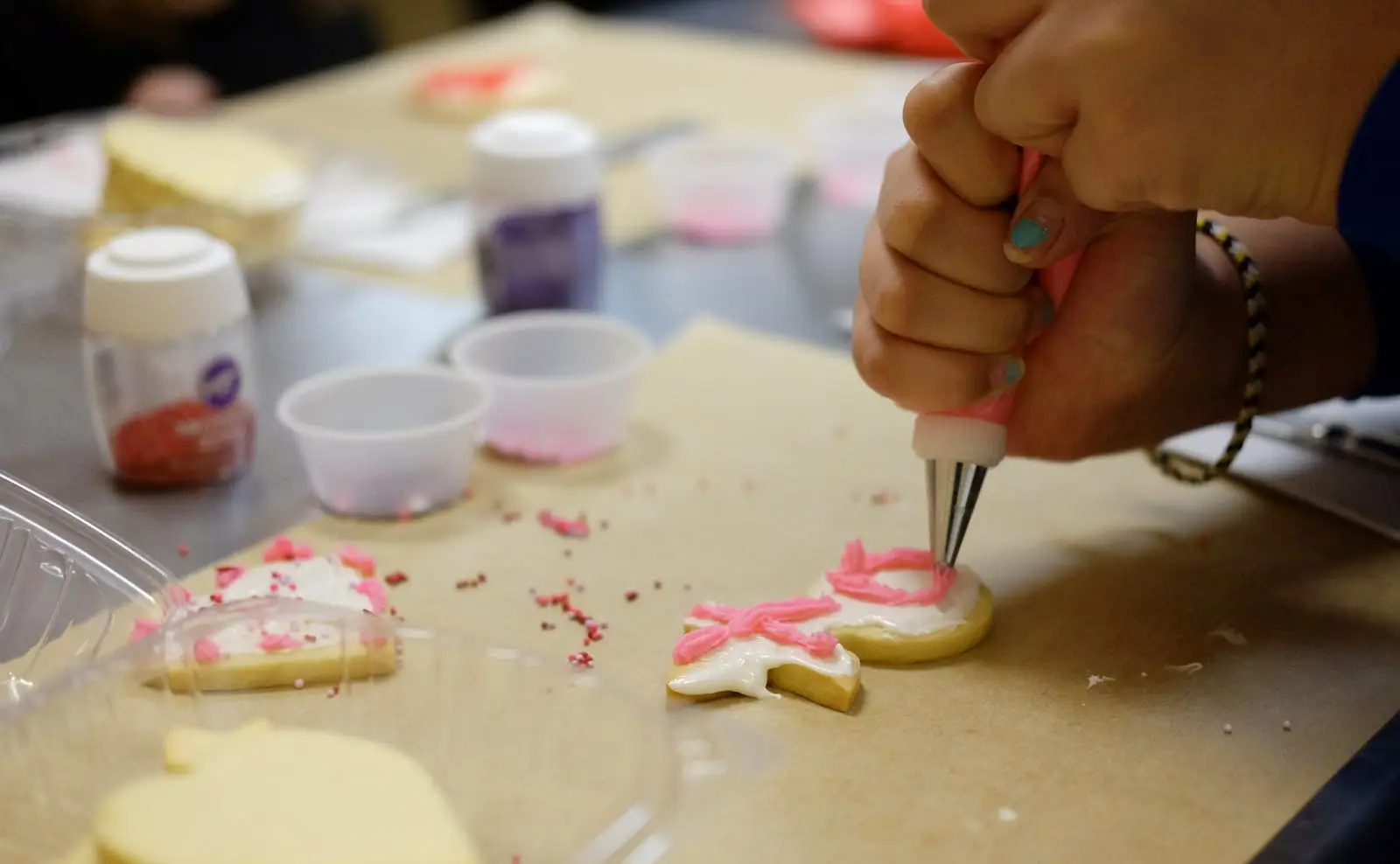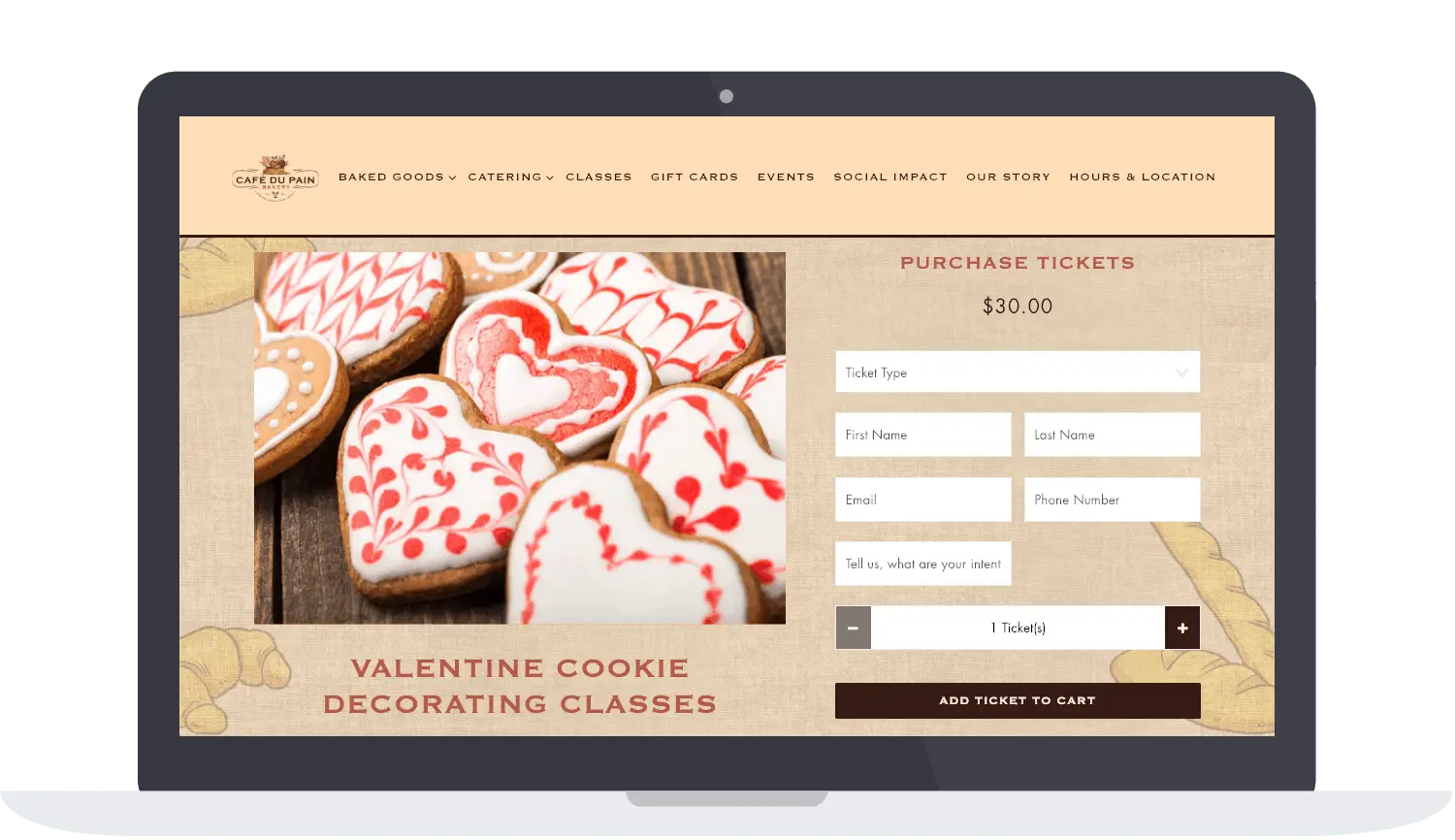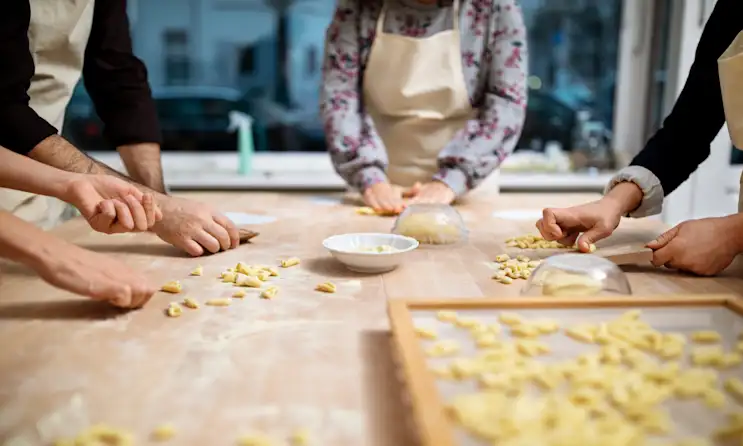Operations
How to Host Restaurant Classes
Build a community and drive revenue.
Your restaurant’s primary focus may be in serving guests, but there’s more you can do with your space to form a deeper connection with your customers and drive revenue. Hosting classes is one such option if you have space and resources to make it happen. Café Du Pain, a globally-inspired bakery in Lawrenceville, New Jersey, began hosting classes in 2018 as a way to earn extra income, build and deepen their ties to the community, and have a little fun too. We teamed up with co-founder Judithe Registre and put together these tips for developing and hosting culinary classes.
Plan Your Curriculum
The first step is to decide what topics, skills, and techniques you’re best poised to teach: wine tastings, date night dinners, knife skills 101. Then, pay attention to local holidays, news, and events, and plan your curriculum accordingly. Registre keeps her finger on the pulse when it comes to planning and marketing the bakery’s classes. “For us, it’s all about tapping into the energy and momentum of what’s already happening,” she says. “For Café du Pain, that meant hosting cookie decorating classes around the holidays and planning special pastry-centric courses for Valentine’s Day.”
Selling tickets online is the key to the best registration experience possible.
Know Your Audience
Keep your customer base in mind so you can tailor your classes to their interests. Registre also recommends offering a variety of classes that appeal to as many guests as possible. For example, some of the bakery’s cookie decorating classes are geared toward families and children, while avid bakers looking to improve their skills might be more drawn to the technique-heavy Croissant Workshop. Keep in mind that some guests enroll in restaurant classes as a way to bond or celebrate a special occasion. Registre has seen an uptick in interest from corporate clients looking for team-building exercises and is adding new classes to suit their needs.
Set the Right Environment
When you’re hosting an interactive, hands-on class in your restaurant, the physical space is a critical factor to consider. If you don’t have room at your restaurant to host classes, look into renting one in your area or partner with a local business whose space you can use after-hours. Café Du Pain uses their prep area (and occasionally their kitchen space) for their classes, setting up ingredients and materials before guests arrive. The size of the space will dictate your attendance— Café du Pain prefers a minimum of 5 and a maximum of 15 people per class, to ensure everyone gets enough instruction. “Staffing is so important because we need to make sure people are getting focused attention and are able to have a unique, personalized experience,” says Registre.

Café Du Pain uses the prep kitchen area to host their various classes.
Most of Café du Pain’s classes take place during business hours, though they plan to expand to after-hours soon. Currently, the bakery’s staff serves as instructors and Registre carefully coordinates schedules to ensure both the classes and the bakery are managed simultaneously. That said, outside instructors aren’t out of the picture. If you have a close relationship with an industry pro who can offer insight beyond your immediate wheelhouse—say, your cheese vendor— you could turn the partnership into a unique class offering.
Promote Your Classes Online and Offline
Café Du Pain gets the word out about their classes using homepage alerts on their website, which direct visitors to the ticketing page as soon as they land on the website. Additionally, they’ll use their social media channels and as well as printed flyers that direct guest to reserve a spot online while they're in the bakery.
Use eCommerce Tools to Sell Tickets
Café du Pain sells tickets to their classes exclusively through its website, which Registre says helps manage the business better. “With physical forms, things can get messy. Selling tickets online is the key to the best registration experience possible,” she says, and the instant guest payment is an added bonus.

Café Du Pain gives guests an easy way to purchase tickets to their classes with an easy checkout portal on their website.
Having the checkout experience online is also a great way to stay organized.“We love the list of names and information provided to us on the back end after people purchase tickets,” Registre says. “We’ve added a question as people are purchasing asking what their intention is in taking this class so we can learn more who they are and what they want to see and tailor our offerings to fit. We use that database to then send follow-up emails afterward. ”
Ask for Feedback
The experience isn’t over after the class ends! The best way to determine whether or not it was a success is to ask for feedback. Use the information from your online ticket orders to email a survey to attendees afterward, asking questions to better understand your audience and learn more about what they are looking for in future events. “What we really want to do is build a community around not only our product but also the people involved. We want to hear their stories,” says Registre. “Some of the questions in our survey are things like ‘What pastry would you be and why?’ and ‘What is your relationship with baked goods?’ Things that not only make the class more interesting but get into our relationship with food and what it means to us. You really begin to connect the people to the baked goods that way.”

BentoBox Marketing & Commerce Platform
Deliver Smarter Hospitality
Want to stand out online, bring in more money, engage your diners, and streamline operations?
Recommended

Commerce
How to Create and Market a Successful Ticketed Event
November 21, 2019
Ways to market and sell tickets to dinners, tastings, cooking classes, and more through your restaurant website.

Marketing
How To Promote Your Restaurant’s Happy Hour Online
June 22, 2018
Use your restaurant website to successfully promote happy hour events

New Openings
Restaurant Branding: From Dish Names to Interior Design
July 6, 2023
A guide to creating a strong restaurant brand that attracts and retains diners.


